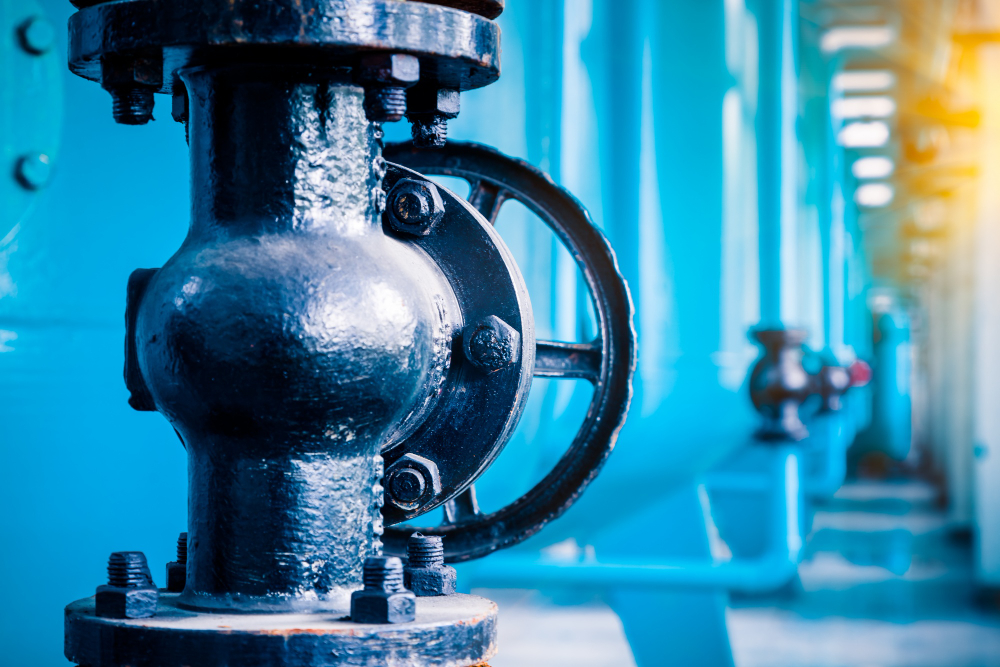Valves are integral components in various industries, playing a crucial role in controlling the flow of liquids, gases, and slurries within a system. They are essential in industries ranging from oil and gas to water treatment, pharmaceuticals, and manufacturing. Given their importance, choosing the right valve for your application is a decision that requires careful consideration. However, it’s easy to make mistakes during the selection, purchase, and installation process, which can lead to inefficiencies, costly downtime, or even system failures.
In this blog, we will explore the common mistakes buyers make when purchasing valves and provide actionable insights on how to avoid them. By understanding these pitfalls, you can ensure optimal performance, reliability, and cost-effectiveness for your systems.
1. Neglecting to Define the Application Clearly
One of the most common mistakes is failing to clearly define the application requirements. Without a comprehensive understanding of the operational parameters, buyers may end up selecting valves that are unsuitable for the job.
Tips to Avoid This Mistake:
- Identify the type of fluid or gas the valve will control (e.g., corrosive, abrasive, viscous).
- Consider the operating temperature and pressure ranges.
- Define the flow rate requirements.
- Determine whether the system requires manual, automatic, or semi-automatic operation.
See Also Rise of Valve Manufacturers in India: Innovations and Industry Insights
2. Choosing the Wrong Valve Type
Valves come in various types—gate valves, ball valves, butterfly valves, globe valves, and more. Selecting the wrong type can compromise system efficiency and functionality.
Tips to Avoid This Mistake:
- Understand the strengths and limitations of different valve types. For example, ball valves are excellent for on/off control, while globe valves are better suited for precise flow regulation.
- Consult with industry experts or manufacturers to match the valve type to your application.
3. Overlooking Material Compatibility
The material of the valve must be compatible with the fluid it will handle. Corrosion, abrasion, and chemical reactions can lead to premature failure if the wrong material is chosen.
Tips to Avoid This Mistake:
- Use corrosion-resistant materials like stainless steel for harsh environments.
- For high-temperature applications, consider materials like brass or bronze.
- Consult material compatibility charts for specific chemicals and fluids.
4. Ignoring Industry Standards and Certifications
Purchasing valves that do not comply with industry standards and certifications can result in safety risks, legal liabilities, and operational inefficiencies.
Tips to Avoid This Mistake:
- Look for valves that meet relevant industry standards such as ANSI, ASME, API, or ISO.
- Verify certifications, especially if the valves will be used in critical applications.
5. Focusing Solely on Price
While cost is a crucial factor, focusing only on the lowest price can lead to compromised quality and performance. Cheap valves may lack durability, reliability, or necessary certifications.
Tips to Avoid This Mistake:
- Evaluate the total cost of ownership, including maintenance and replacement costs.
- Prioritize quality and performance over upfront savings.
- Consider reputable manufacturers with proven track records.
See Also Top Valves Manufacturers in India You Need to Know About
6. Misjudging Valve Size
Incorrect sizing is a frequent issue. Valves that are too small or too large for the system can lead to inefficiencies or damage.
Tips to Avoid This Mistake:
- Conduct proper flow calculations to determine the appropriate valve size.
- Use tools like valve sizing charts or software.
- Seek guidance from manufacturers or industry professionals.
7. Overlooking Maintenance and Lifecycle Costs
Some buyers neglect to consider the long-term maintenance requirements and lifecycle costs of valves. This oversight can lead to increased operational costs over time.
Tips to Avoid This Mistake:
- Choose valves that are easy to maintain and repair.
- Opt for designs with replaceable parts.
- Factor in the expected lifespan of the valve when evaluating costs.
8. Skipping Thorough Testing and Inspection
Skipping quality checks and inspections can lead to the purchase of defective or subpar valves, which may fail during operation.
Tips to Avoid This Mistake:
- Conduct thorough testing, such as pressure and leak tests, before installation.
- Insist on quality assurance documentation from suppliers.
- Inspect valves upon delivery to ensure they meet specifications.
9. Ignoring Supplier Credibility
Choosing an unreliable or inexperienced supplier can result in delays, quality issues, and poor customer support.
Tips to Avoid This Mistake:
- Research the supplier’s reputation and customer reviews.
- Ensure the supplier provides after-sales support and warranties.
- Choose suppliers with a solid history of serving your industry.
See Also Best Valves Manufacturers in India: A Comprehensive Guide for 2024
10. Improper Installation Practices
Even the best valves can fail if installed incorrectly. Common installation errors include improper alignment, over-tightening, and failing to follow manufacturer guidelines.
Tips to Avoid This Mistake:
- Ensure installation is carried out by qualified professionals.
- Follow the manufacturer’s installation instructions.
- Use appropriate tools and techniques for installation.
11. Disregarding Environmental Factors
Environmental conditions such as humidity, temperature fluctuations, and exposure to chemicals can affect valve performance.
Tips to Avoid This Mistake:
- Assess the installation environment thoroughly.
- Choose valves with protective coatings or enclosures if required.
- Consider factors like UV exposure and submersion when selecting valves.
12. Failing to Plan for Future Needs
Many buyers overlook the potential for system expansion or changes in operational requirements, leading to compatibility issues in the future.
Tips to Avoid This Mistake:
- Choose valves that allow for scalability and flexibility.
- Invest in valves with adjustable features or modular designs.
- Plan for potential changes in flow rates or pressure requirements.
Conclusion
Purchasing valves is a critical decision that demands careful consideration and planning. Avoiding common mistakes can save you time, money, and frustration while ensuring the longevity and efficiency of your systems. By clearly defining your requirements, prioritizing quality over cost, and working with reliable suppliers, you can make informed choices that benefit your operations.
If you are looking for trusted valve manufacturers in India, Enggpro provides a comprehensive list of verified suppliers specializing in high-quality valves for various industries. From ball valves to gate valves, Enggpro connects you with manufacturers that adhere to stringent quality standards and offer exceptional customer service.
For more information and to find the best valve manufacturers in India, visit Enggpro



